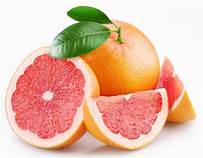A fad diet is a weight loss plan or aid that promises dramatic results. These diets typically don’t result in long term weight loss and they are usually not very healthy. In fact, some of these diets can actually be dangerous to your health.
How to spot a fad diet?
Unfortunately, social media has increased the coverage of these diets or diet supplements. ‘Influencers’ promote them and market photoshopped images to make a little extra cash. It’s a sure way for young, impressionable teenagers to catch on. There have been many crazy fad diets in the past but supplements and teas seem to have taken over the present.
Some examples:
How to spot a fad diet?
- The diet only lasts a certain number of days/weeks
- You’re only allowed certain foods – Including but not limited to requiring you to skip meals or replace meals with special drinks or food bars
- The diet ‘promises’ weight loss from a specific part of your body
- There is a guarantee of how much weight you will lose
- It doesn’t promote exercise/healthy lifestyle practices – be weary
- You are asked to invest in supplements, herbs, pills or patches
Unfortunately, social media has increased the coverage of these diets or diet supplements. ‘Influencers’ promote them and market photoshopped images to make a little extra cash. It’s a sure way for young, impressionable teenagers to catch on. There have been many crazy fad diets in the past but supplements and teas seem to have taken over the present.
Some examples:
- Grapefruit diet -It is a low calorie diet that consists of grapefruit with a protein source at each meal. Grapefruit reduces insulin response along with a protein source give a ‘full feeling’ .
Why these diets don’t work
The best type of ‘Diet’
- Cabbage Soup Diet - Dieters consume cabbage soup only for 7 days.
- Atkins Diet – High Fat/Low carb diet
- Shakes/Juice diets – May only consume shakes or juices as part of the diet
Why these diets don’t work
- They are just not sustainable
- They slow down BMR and as soon as a person starts eating normally again they put all weight back on and even more sometimes
- People either can’t exercise (very low calorie diets) or it's not recommended. So they end up eating into muscle mass rather than losing fat mass
- The more sustainable methods are often too expensive/ people don’t have amenities
- People end up binging if they restrict themselves too much
The best type of ‘Diet’
- 80/20 approach – 80% good whole foods with 20% treats
- Stick to one ingredient foods, two at the most
- At all meals, try to ensure you have a balanced meal
- Always drink approx. 2 litres of water. Tea and coffee are allowed but limit them and try green tea and herbal tea
- Choose wholemeal options rather than white
- Choose organic if possible
- Extra virgin oil should be used for frying. Sea salt, pepper, and spices for seasoning
- Don’t forget about healthy fats
- I recommend everybody takes a probiotic supplement (important for digestive health) and fish oils (important for overall health)


 RSS Feed
RSS Feed